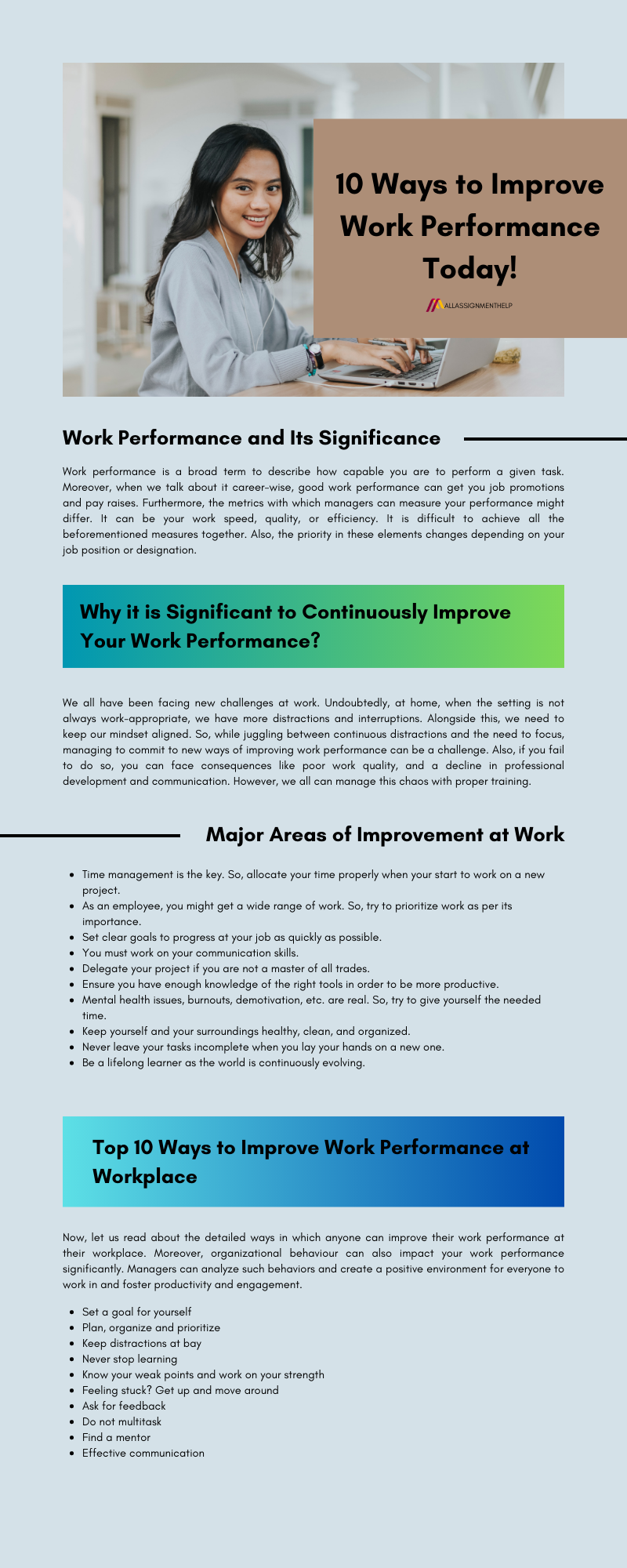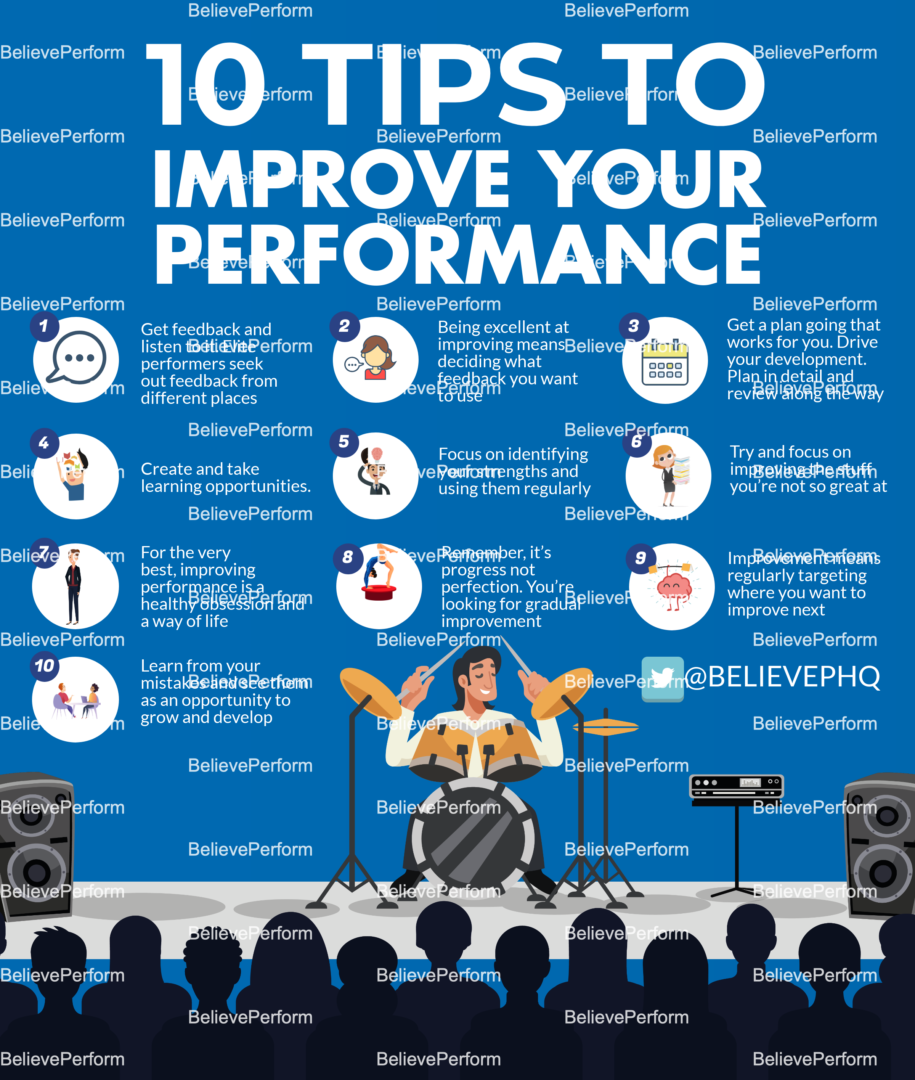How Can Someone Improve Their Work Performance
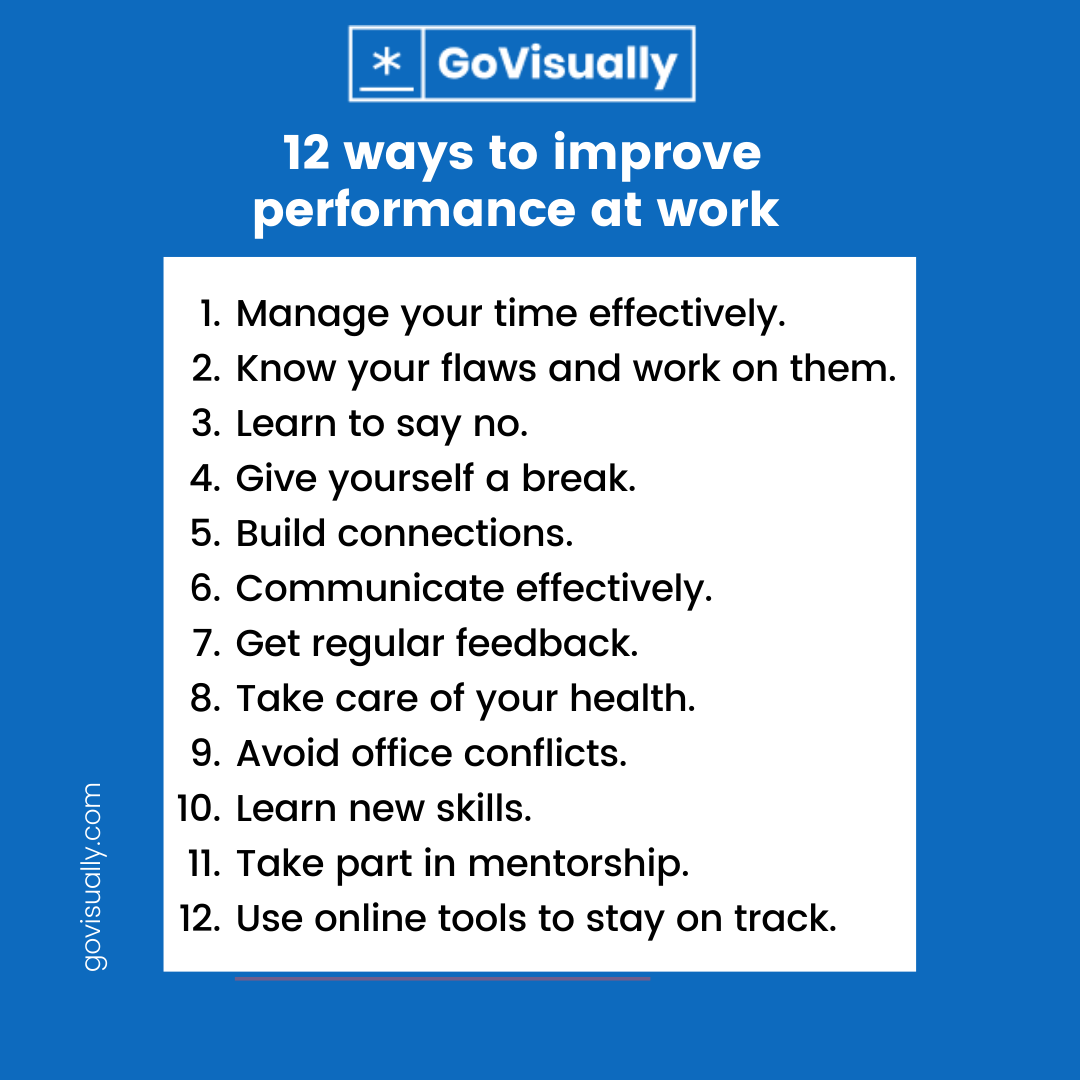
In today's relentlessly competitive professional landscape, the pressure to not only meet but exceed expectations is a constant. Many workers find themselves grappling with plateaus in their performance, struggling to unlock their full potential and advance their careers. But how can individuals proactively elevate their work performance and thrive in their respective fields?
This article delves into actionable strategies and expert-backed advice for enhancing work performance. We will explore a range of techniques, from optimizing time management and skill development to fostering effective communication and cultivating a positive work environment, all aimed at empowering individuals to become more productive, efficient, and successful in their professional lives.
Mastering Time Management and Prioritization
One of the cornerstones of improved work performance is effective time management. According to a study by the American Psychological Association, chronic stress related to poor time management can significantly hinder cognitive function and productivity. Mastering time management is crucial for enhancing work performance.
Techniques like the Pomodoro Technique (working in focused 25-minute intervals followed by short breaks) can help maintain concentration and prevent burnout. Employing tools such as to-do lists, calendars, and project management software allows for the prioritization of tasks and efficient allocation of time, leading to greater output and reduced stress.
Continuous Skill Development and Learning
The modern workplace demands constant adaptation and a commitment to lifelong learning. The World Economic Forum consistently emphasizes the importance of reskilling and upskilling to remain competitive in the evolving job market. Stagnation can quickly translate to decreased performance.
Actively seeking opportunities for professional development, such as attending workshops, taking online courses (platforms like Coursera and edX offer a wealth of resources), and pursuing certifications, can significantly enhance one's skillset. Embracing new technologies and methodologies relevant to one's field not only boosts individual performance but also contributes to the overall growth of the organization.
Communication and Collaboration: Building Bridges
Effective communication is paramount for successful teamwork and project outcomes. A 2018 study by McKinsey Global Institute found that improved communication and collaboration technologies can raise productivity by 20-25%. Clear and concise communication minimizes misunderstandings and fosters a more collaborative work environment.
Actively listening to colleagues, providing constructive feedback, and utilizing communication tools effectively are essential. Participating in team-building activities and fostering strong working relationships can further enhance collaboration and improve overall performance.
Cultivating a Positive Work Environment
A positive and supportive work environment significantly impacts employee morale and productivity. A study published in the Journal of Applied Psychology found a strong correlation between workplace satisfaction and job performance. Employees who feel valued and supported are more likely to be engaged and productive.
Promoting open communication, recognizing and rewarding achievements, and fostering a culture of respect are crucial. Addressing workplace conflicts promptly and fairly and encouraging a healthy work-life balance can also contribute to a more positive and productive environment.
Seeking Feedback and Embracing Constructive Criticism
Regular feedback is essential for identifying areas of improvement and tracking progress. Actively seeking feedback from supervisors, colleagues, and clients provides valuable insights into one's strengths and weaknesses. Consider feedback from reliable sources to make sure you are getting the right feedback.
Embracing constructive criticism as an opportunity for growth, rather than taking it personally, is crucial. Using feedback to set specific, measurable, achievable, relevant, and time-bound (SMART) goals can lead to significant improvements in performance.
Prioritizing Well-being and Self-Care
Maintaining physical and mental well-being is crucial for sustained high performance. Burnout, stress, and fatigue can significantly impair cognitive function and productivity. Prioritizing self-care activities, such as exercise, healthy eating, and adequate sleep, is essential.
Practicing mindfulness and stress-reduction techniques, such as meditation or yoga, can also help manage stress levels and improve focus. Setting boundaries between work and personal life is also important to prevent burnout and maintain a healthy work-life balance.
Looking Ahead: The Future of Work Performance
The future of work will likely involve even greater emphasis on adaptability, continuous learning, and leveraging technology to enhance productivity. As the workplace continues to evolve, individuals who proactively embrace these strategies will be best positioned to thrive and achieve sustained success. Embracing new technologies and methodologies will be key to excelling in the future of work.
By implementing these strategies, individuals can take control of their professional development and unlock their full potential, ultimately contributing to their own success and the success of their organizations.
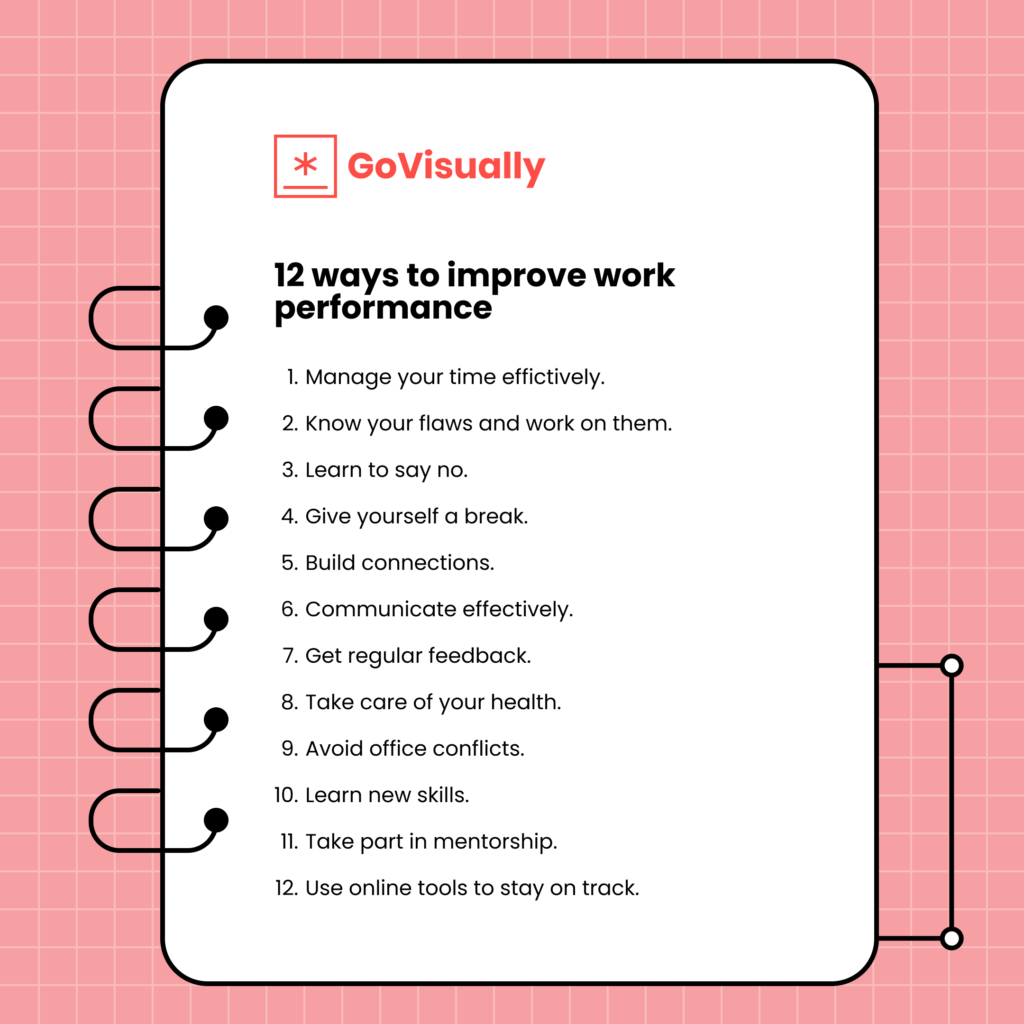
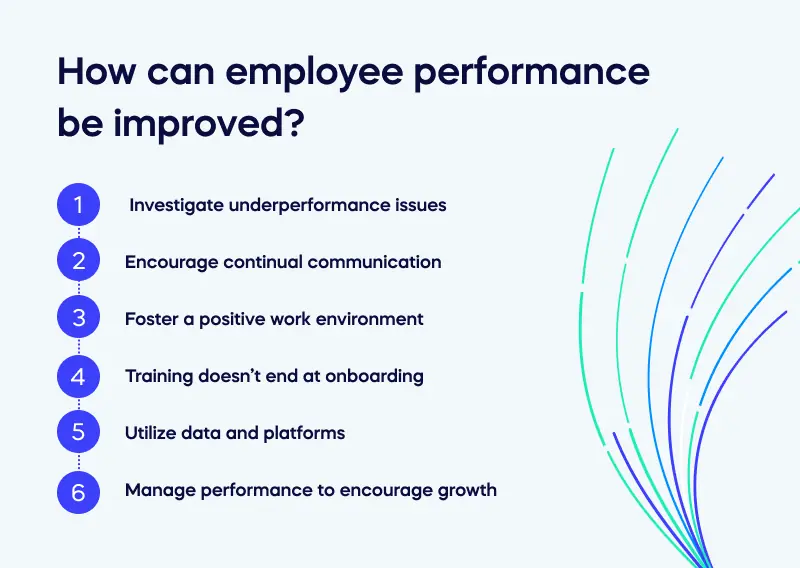


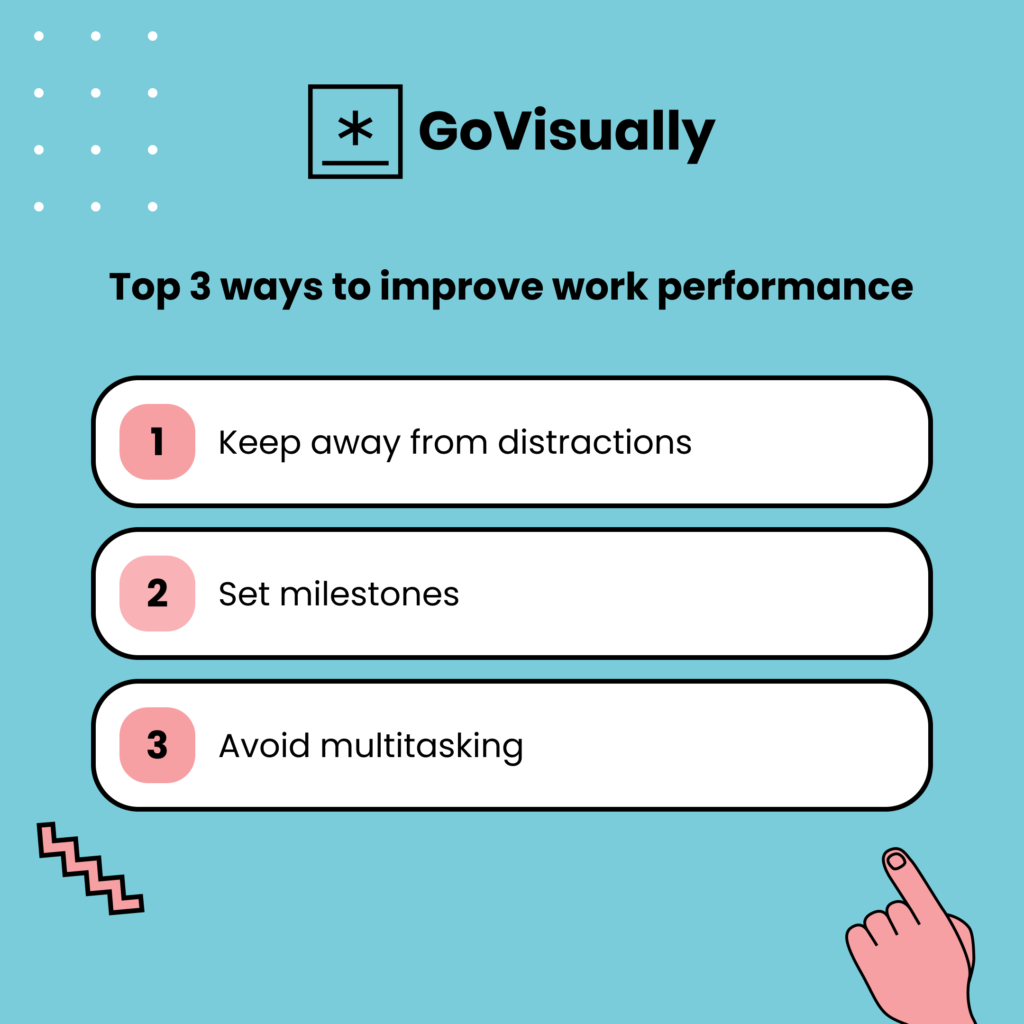



![How Can Someone Improve Their Work Performance 7 Strategies to Improve Employee Performance [That Actually Work]](https://blog.gyde.ai/content/images/size/w2000/2023/07/7-Strategies-to-Improve-Employee-Performance1.jpg)






